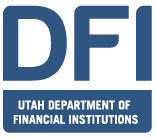Consumer Tips
- Auto Loan Tips
- Mortgage Loan Tips
- Fraud Alert
- Accelerated Payment Programs
- Checking Accounts – Pitfalls to Avoid
- Credit Reports
- Co-maker, Co-signer, or Guarantor
- Credit Cards
- Interest Rates
- Debt-to-Income Ratio
General Tips
1. Safeguard your credit cards and credit card account numbers. Never give your credit card number to anyone who is soliciting you. If you have contacted a
reputable company, and wish to use your card to pay for goods or services, you may need to give them your card number by mail or phone. Companies or individuals soliciting you may not be what or who they claim to be, and we strongly recommend you do not give them your card numbers.
2. Safeguard your checks and checking account numbers. Never give your checking account number to anyone except in a bona fide financial transaction such as a loan application. Never give your checking account number to someone who is soliciting you, particularly over the phone.
3. Do not pay up-front fees in hopes of obtaining a loan or a credit card. An exception to the rule is a mortgage loan application which usually requires payment for an appraisal and a credit report. Compare rates, fees and service before committing to a particular mortgage company — see the Mortgage Loan Tips section of this web site for more suggestions. Popular loan scams ask you to send a fee promising a loan or credit card even if your credit is bad. Be especially cautious if they ask you to wire money, or send it to an out-of-state address. Some advanced-fee schemes actually provide a service, such as sending you a list of banks offering secured credit cards, but that service is usually of little or no worth.
4. Be cautious of credit repair services which claim to be able to fix bad credit. If you have inaccurate information on your credit report, you may contact the credit bureaus directly and dispute it yourself. If you have had recent credit problems, anything a credit repair service does to remove the related information from your record is very likely illegal, and only temporary. You may obtain a copy of your own credit report by contacting the credit bureau.
5. Never sign blank or incomplete documents, or any documents you don’t understand. Take time to read and understand documents you are asked to sign. Don’t rely on what someone tells you.
6. Establish good credit by making timely payments on credit card amounts or installment purchases. If you have no credit history, lenders will often require a co-maker with a good credit payment history to co-sign or guarantee your loan.
